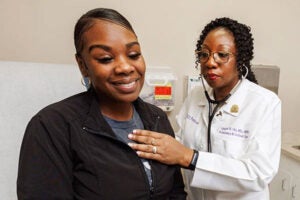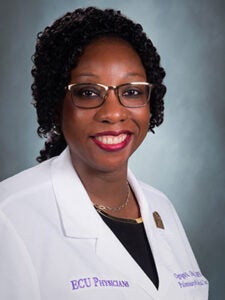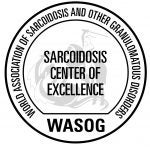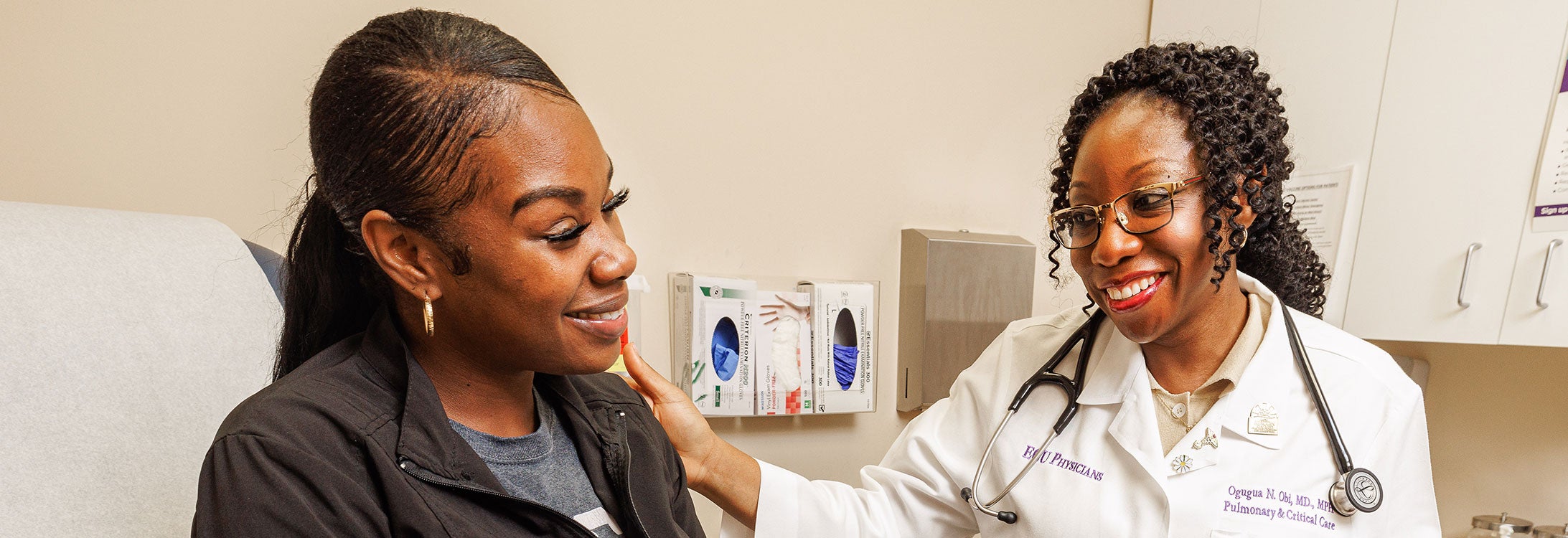Sarcoidosis Center of Excellence
What is Sarcoidosis?
 Sarcoidosis is a complex multi-system inflammatory disease characterized by the formation of non-caseating granulomas (tiny clumps of inflammatory and immune cells) in one or more organs of the body. An excessive accumulation of these granulomas can interfere with an organ’s structure and function. Sarcoidosis most commonly involves the lungs in approximately 90% of cases, but it can affect almost any organ in the body. In addition to the lungs, the organs most affected are the skin, eyes and extra-thoracic lymph nodes.
Sarcoidosis is a complex multi-system inflammatory disease characterized by the formation of non-caseating granulomas (tiny clumps of inflammatory and immune cells) in one or more organs of the body. An excessive accumulation of these granulomas can interfere with an organ’s structure and function. Sarcoidosis most commonly involves the lungs in approximately 90% of cases, but it can affect almost any organ in the body. In addition to the lungs, the organs most affected are the skin, eyes and extra-thoracic lymph nodes.
Sarcoidosis occurs throughout the world, affecting people of all races and ethnic groups. It is estimated that the prevalence of sarcoidosis in the US ranges between 150,000 and 200,000 individuals. Sarcoidosis occurs three (3) times more commonly in African/ Black Americans than in White Americans and is twice as common in women than in men. Most cases are diagnosed between the ages of 25 and 40.
No one knows what causes sarcoidosis; however, it is believed to occur in genetically predisposed individuals following exposure to certain occupational and environmental antigens. Multiple occupational and environmental exposures have been associated with sarcoidosis however none has been directly implicated. Sarcoidosis is not directly inherited however, you may be at higher risk of developing sarcoidosis if you have a first-degree biological relative (parent, child, or sibling) who has it.
Disease presentation and severity in sarcoidosis varies widely among patients. In some cases, the disease goes away on its own. In others, the disease may not progress yet affected individuals suffer from symptoms that negatively impact their quality of life. Up to a third of patients diagnosed with sarcoidosis will require long-term treatment and about 10% of patients with pulmonary sarcoidosis will develop progressive fibrosis (or scarring) in their lungs. Sarcoidosis is considered chronic in people whose disease remains active for more than 3 years; in this population sarcoidosis can be debilitating and life-threatening. Certain disease manifestations such as extensive scarring in the lungs (fibrotic pulmonary sarcoidosis), pulmonary hypertension (high pressures in the lungs and heart), sarcoidosis in the heart (cardiac sarcoidosis) or brain involvement (neurosarcoidosis) are associated with significant morbidity and mortality.
North Carolina ranks amongst the top 5 states in the nation with respect to mortality associated with sarcoidosis. Eastern North Carolina has the highest sarcoidosis related mortality in the state.

Ogugua Ndili Obi, MD, MPH MSc (Epid), FCCP
Associate Professor of Medicine
Director of the Sarcoidosis Center of Excellence at ECU
Co-Director of the Sarcoidosis /Interstitial Lung Disease Clinical Program
Division of Pulmonary, Critical Care, and Sleep Medicine, ECU
The Sarcoidosis Center of Excellence at ECU

What we offer
- Individualized patient care with access to a team of specialists. The goal of this team is to manage your symptoms, while improving your quality of life.
- State-of-the-art diagnostic testing and advanced treatment methods to provide patient-focused care that relieves a patient’s symptoms and prevents irreversible organ damage from chronic inflammation due to sarcoidosis.
- Cutting-edge sarcoidosis clinical trials and access to the latest research to discover new and improved diagnostic and treatment options for patients with sarcoidosis.
Our Providers
Pulmonary Sarcoidosis
- Ogugua Ndili Obi, MD, MPH, MSc (Epid), FCCP – Pulmonologist and director of the Sarcoidosis Center of Excellence at ECU; focus: fibrotic and non-fibrotic pulmonary sarcoidosis, extra-pulmonary sarcoidosis including cardiac, neuro, and cutaneous sarcoidosis, Health Related Quality of Life in sarcoidosis
- Veeranna Maddipati, MD – Pulmonologist; focus: sarcoidosis associated pulmonary hypertension (SAPH)
- Shehabaldin Alqalyoobi, MD, MS, E-AEC – Pulmonologist; focus: Interstitial lung disease, sarcoidosis
Cardiac Sarcoidosis and Advanced Cardiac Imaging
- Sivakumar Ardhanari, MD – Cardiologist; focus: Cardiac sarcoidosis
- Fabrizio R. Assis, MD – Clinical Cardiac Electrophysiologist; focus: Cardiac sarcoidosis
- C. Bogdan Marcu, MD, FACC, FESC, FASE – Cardiologist; focus: Advanced Cardiovascular Imaging
- Heather Day, ACNP, HF-Cert – Focus: Sarcoid Cardiomyopathy & Advanced Heart Failure management.
Neurosarcoidosis
- Susan Evans, MD – Neurologist; focus Neuroimmunology
- Robert Frere, MD – Neurologist; focus: Neurosarcoidosis
Ocular Sarcoidosis
- Ann Ostrovsky, MD – Opthalmologist and Chief of Ophthalmology at ECU Health. Focus: Ocular sarcoidosis, Uveitis
- Yen Hoang Nguyen, OD – Optometrist; Routine eye screening
Research in Sarcoidosis
- Anagha Malur, PhD – Director of Research, Division of pulmonary and Critical Care. Focus: Translational research in Sarcoidosis, Asthma, and Pulmonary Hypertension
Contact Us
Mail Stop 628
Brody School of Medicine
Brody Bldg, Room 3E-149
600 Moye Blvd.
Greenville, NC 27834
252-744-4650
pulm@ecu.edu
Director of Research,
Pulmonary, Critical Care, and Sleep Medicine
252-744-1116
malura@ecu.edu
Nurse Manager
Pulmonary, Critical Care, & Sleep Medicine
252-744-1600
Fax: 252-744-1115
